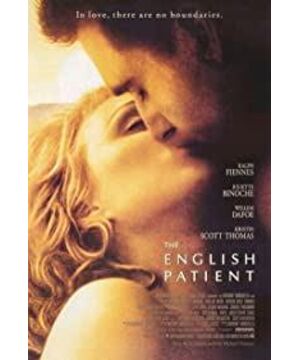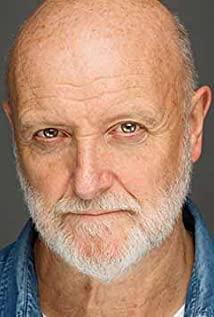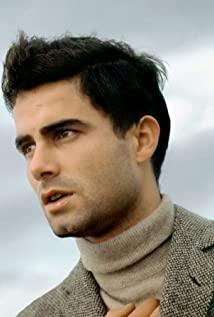He made tapes of British patients, which he sometimes listened to before bedtime. The back of the tape reads love, desert, wind.
The patient is a desert, lonely and calm. K is wind, warm and turbulent. Love is the combination of desert and wind, and the wind and sand fill the sky.
There is no doubt that this is a love movie. Minghella is talking about love, two loves that happened in war, different countries, different races, and different skin colors.
The patient is lonely and calm like a desert. He has no lover, and his love needs freedom and passion. He likes K but he is hesitant to move forward because he hates possession and being possessed. He would write poems for K, he would follow K, he would peek at K's expression. But he didn't want K's illustrations in his book.
Until the wind and sand filled the sky, he told K about all kinds of winds, and he knew that K was the wind that rolled up his desert.
He hated possession, but named K's collarbone his own. He hated being possessed, but he was willing to give everything to K.
This is how the story begins and ends like this.
K floated like the wind, moved the patient's mind like the wind, and fell from the sky like the wind.
K loves water, swimming caves, flying freely, and patients. She's invested in her feelings, and it's out of control. She is reckless and does not want the future.
She ended up dying in that cave she loved so much, waiting for her lover to come back, or, to be reunited in another world.
I love this kind of sensationalism. K, wrapped in white silk, was carried out of the cave by the patient. Music played, white silk and hair danced in the wind, and the patient was heartbroken but silent. Over the desert like water waves, K flew freely in the front seat, and the patient sat in the back seat calmly and peacefully.
I hate this ending, the romance in the greatest war, it makes me so down.
Lao Ye asked me, why did Mingla want to give the nurse a love, and it ended like this?
I think Mingela is expressing his views on love through Nurse and Asan.
Possessing and being possessed are themes of love among English patients. The patient and K possessed each other; the nurse and Asan once possessed.
In the end, the nurse sat in the car returning to the city, and the sun shone in front of her eyes through the woods.
But the last patient and K don't know where they are scattered.
My darling, I am waiting for you...
How long is the day in the dark...Or a week?
Fire is gone now, and I'm horribly cold.
I really ought to drag myself outside, but then there' d be the sun.
I am afraid I waste the light on the paintings and on writing these words.
We die...We die with eyes rich with the lovers and tribes,tastes we have swallowed,bodies we have entered and swum up like rivers, fears we have hidden in like this wretched cave...
I want all these marked on my body.
We are the real countries, not the boundaries drown on maps with names of powerful men.
I know you will come and carry me out into the palace of winds,that's all I've wanted--to walk in such a place with you,with friends,on the earth without maps...
The lamp is gone out.I 'm writing in the darkness...
PS:
1. The title of the poster: in memory, love lives forever. I don't know which love Mingla prefers.
2. Other characters and branch lines are not in your thoughts. If you have any discussions, you can leave a message.
3. This is, in my opinion, the best war romance movie, bar none.
View more about The English Patient reviews











